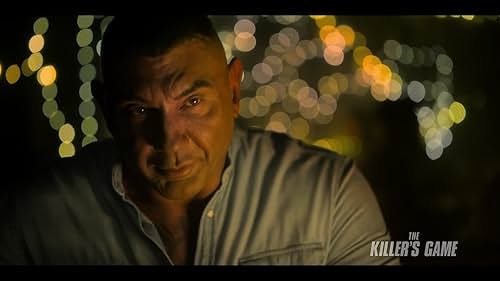“House of Ga’a,” directed by Bolanle Austen-Peters, is a historical drama set in the 18th-century Oyo Empire, a prominent Yoruba monarchy in what is now southwest Nigeria. The film centers on Bashorun Ga’a, a feared and influential political leader who uses his military prowess and spiritual knowledge to rise to power as a kingmaker. The story begins with Ga’a’s victory over Nupe invaders, earning him respect and influence within the Oyo Empire. However, his increasing authority brings him into conflict with the reigning Alaafin (king).
As Ga’a consolidates his power, he employs political manipulation, intimidation, and spiritual influence to maintain control over the empire. His rule is marked by ruthless decisions and the elimination of his opponents, leading to widespread fear and oppression. Despite his great power, Ga’a’s overreach and tyrannical actions ultimately lead to his downfall, orchestrated by those closest to him.
Strengths:
Performances:
Femi Branch delivers a powerful performance as Bashorun Ga’a, portraying the character’s complexity as both revered and feared. His portrayal captures Ga’a’s charisma, ambition, and eventual downfall. The supporting cast, including Toyin Abraham, Funke Akindele, and Ibrahim Chatta, add depth to the narrative, enhancing the tension and drama of the film.
Direction and Cinematography:
Bolanle Austen-Peters successfully brings the grandeur of the Oyo Empire to the screen. The film’s visual presentation is rich and immersive, with detailed set designs and costumes that reflect the era’s opulence. The cinematography, featuring sweeping shots of the empire and close-ups of the characters’ emotional struggles, is a highlight. The use of traditional Yoruba music and sound design further enhances the film’s authenticity and cultural depth.
Storytelling:
The screenplay, written by Tunde Babalola, weaves a complex narrative exploring themes of power, betrayal, and the supernatural. The film skillfully integrates historical elements with dramatic storytelling, making it both educational and entertaining. The dialogue is sharp and engaging, capturing the political intrigue and personal conflicts that drive the plot. However, some critics note that the narrative occasionally becomes dense, which might be challenging for viewers unfamiliar with the historical context.
Cultural and Historical Significance:
“House of Ga’a” is a significant contribution to African cinema, shedding light on the complexities of leadership and governance in pre-colonial West Africa. By focusing on Bashorun Ga’a, the film provides a perspective on African history often overlooked in mainstream media.
Weaknesses:
Character Depth:
While Femi Branch’s portrayal of Ga’a is strong, some critics argue that the character could have been more nuanced. At times, Ga’a’s motivations and inner conflicts are overshadowed by his actions, making him feel more like a symbol of tyranny than a fully realized human being.
Pacing:
The film’s pacing has received mixed reviews. While the buildup to Ga’a’s rise to power is compelling, the middle section, dealing with the consolidation of his power, drags slightly, leading to a loss of momentum before the climactic downfall.
Key Elements and Analysis:
The film is praised for its stunning visual presentation, with detailed sets and costumes that vividly bring the 18th-century Oyo Empire to life. Femi Branch captures Ga’a’s charisma and ruthlessness, though some moments of overacting detract from the character’s depth. The film’s attempt to stay true to historical accounts is commendable, providing a window into the political dynamics and spiritual beliefs of the Oyo Empire. However, the historical context may be challenging for some viewers without prior knowledge.
Rating & Reception:
“House of Ga’a” has received mixed to positive reviews, praised for its epic scope and performances but critiqued for narrative inconsistencies and underdeveloped characters. It is seen as an important contribution to Nigerian cinema, with ratings ranging from 5/5 for its storytelling and visual grandeur to 6.5/10 due to its narrative flaws. The film is available on Netflix and is recommended for viewers interested in historical dramas and African history.





